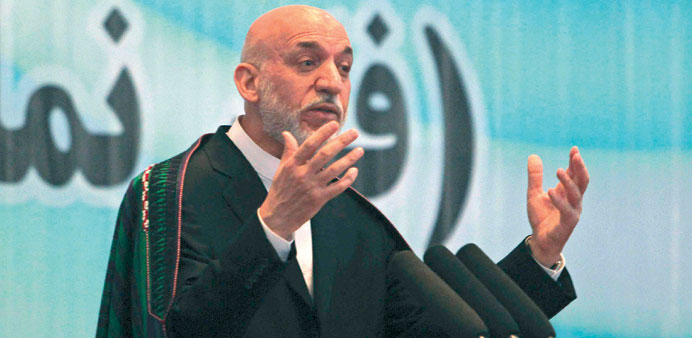|
|
The 10th annual US-Islamic World Forum begins at the Ritz-Carlton Doha today.
Organised jointly by Brookings Project on US Relations with the Islamic World and Qatar, the three-day conference will conclude on June 11.
The forum will host President Hamid Karzai of Afghanistan, HE the Deputy Prime Minister and Minister of State for Cabinet Affairs Ahmed bin Abdullah al-Mahmoud, former US ambassador to the United Nations Thomas Pickering, Egyptian Minister for International Co-operation and Development Amr Darrag, Public Diplomacy and Public Affairs undersecretary Tara Sonenshine and Organisation of Islamic Cooperation secretary-general Ekmeleddin Ihsanoglu, among others.
This year’s forum is titled “A Decade of Dialogue”, representing its ongoing commitment to fostering improved relations between the United States and Muslim societies around the world.
It will focus on the conflicts in Afghanistan and Syria, political change in Pakistan and a number of Arab nations, as well as the need for greater economic opportunity within the world’s emerging democracies.
“The 10th annual forum comes at a time of transition and conflict for several nations,” said Brookings vice-president and director of foreign policy Martin Indyk. “Through frank and honest dialogue, we hope to contribute to greater security and stability for those countries and peoples currently at greatest risk.”
Every year, the forum brings together officials, policymakers, scholars, thought leaders, journalists and activists for “candid dialogue and strategic engagement on a range of political, economic and socio-cultural issues”. This year’s edition includes participants from more than 30 countries and Muslim-majority communities.
“Over the past 10 years, the US-Islamic World Forum has played a critical role in building bridges between the United States and Muslim-majority communities,” said Tamara Wittes, director of the Saban Center for Middle East Policy at Brookings.
In particular, this year’s sessions will highlight the changing landscape in South Asia, assessing how Nato and US troop withdrawals from Afghanistan and the historic transfer of power in Pakistan will affect prospects for internal and regional security.
Other sessions will focus on the economic challenges that have loomed throughout the Middle East in the aftermath of the Arab Spring. The forum working groups will examine how economic growth and inclusiveness can be fostered amid continued political instability. The forum will also convene a discussion on the conflict in Syria, exploring the spiralling effects of the conflict on the Middle East, including humanitarian concerns, security threats and political challenges.
The forum will address Arab public opinion, the driving forces behind the Arab uprisings and how these are likely to shape the political battles in Arab societies in the coming years.

